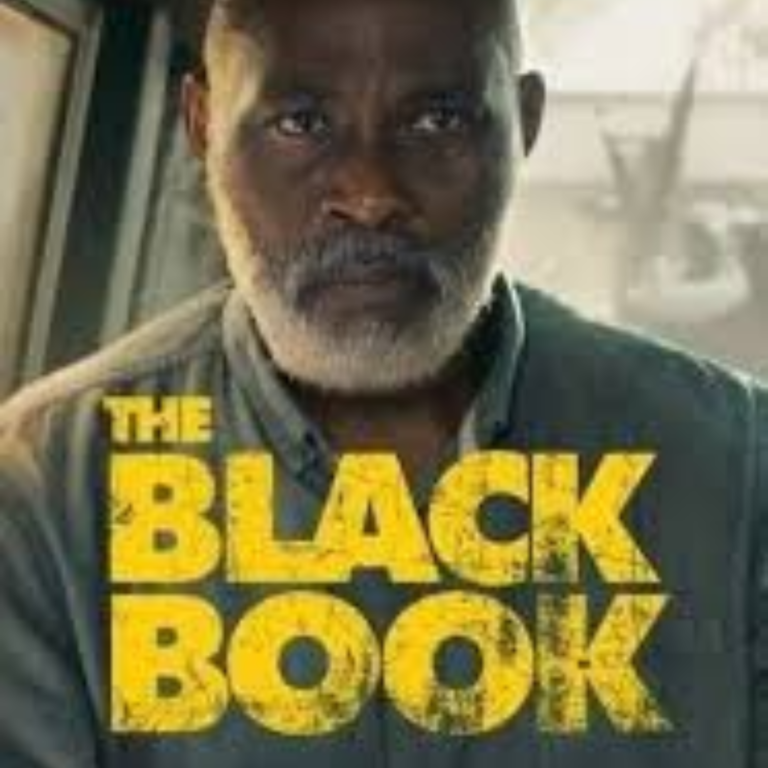Every week, Zikoko will share the hustle stories of Nigerians making it big in and out of the country. With each story, we’ll ask one crucial question in several ways: “How you do am?”
Let’s take it back to the beginning. Was becoming a mechanic always the plan?
No, I don’t think so. But I’ve always been good with my hands. Before I turned 10 years, my parents already trusted me to fix little things around the house — from changing electric bulbs to troubleshooting the generator’s minor faults.
But I also loved engines. If a mechanic came around to fix my parents’ cars, I always stayed with them, curious to know what they were doing. It’s interesting how much I picked up from this process.
I wasn’t sure what to use the body of knowledge for, though. The plan was to become a civil engineer.
Where did the interest come from?
My dad is a civil engineer. I used to go to the field with him, and it looked like something I’d be good at. Fast forward to 2009, I got into the University of Lagos to study Civil Engineering. After a year, I was like, “Wetin be this?”
What happened?
I’d failed a few courses, and I knew that I was going to have an extra year. To be honest, I was always an average student, but the university kicked my ass in a way I didn’t think was possible. Naturally, I started falling out of love with civil engineering.
But one thing didn’t change — I still loved engines, and I loved cars. It helped that I had a car and made frequent trips to the mechanic workshop. Every time I was there, I was always eager to study what the mechanic was doing.
In my second or third year in the university, I decided to act on this interest. I wanted to be more intentional about learning how cars work and how to fix them.
What did this plan look like?
I had a good relationship with my mechanic. So I asked him to take me in as one of his interns. He was hesitant at first because I was in the university, but he agreed to it when he saw that I was relentless. For the next few months, I was sharing my time between his workshop and the campus.
While this was going on, I was constantly thinking about how to take this learning curve to the next level. Thankfully, I found a structured learning opportunity.
I used to follow a super helpful weekly radio show about cars. The presenter owned an auto workshop called Automedics, and he always came off as an expert. Then I started thinking about interning at his workshop. On a whim, I sent him a cold email, asking if I could intern with him.
He rejected me outrightly.
Ouch
I wasn’t going to give up that easily. A few days later, I went to his office to plead my case. He was sympathetic, but he said he couldn’t take me in at the time. I was crushed — but at least I tried. Then something unexpected happened.
One of my mum’s friends had a canteen near the workshop, so I went there for lunch. When I told her the reason I was in the area, she grabbed my hands and took me back to the workshop. As it turned out, my mum’s friends knew the guy. She didn’t even have to say much before the man said, “Okay, start on Monday.”
LMAO. Look at you being a nepo baby
Haha. I spent about two years at the workshop and got so good at fixing cars. The workshop didn’t pay interns, but after a few months, the workshop manager started giving me a stipend every weekend.
What do you think made the difference?
I was incredibly invested in what I was learning and wanted to take in everything — from cars’ bodywork to the engine to the electrical systems.
Also, the incremental knowledge I’d been gaining about automobile systems since I was young came into full bloom when I was at the workshop. And I never stopped trying to learn. My companions were a book called Introduction to Automotive Engineering and Youtube videos from mechanics like EricTheCarGuy and Scotty Kilmer.
My bosses could tell that I was in this for the long haul, and they respected that by giving me as many responsibilities as they could. I was only too happy to take them on. By the time I left the workshop in 2014, I’d already started getting my clients.
By the way, I was still in university. My parents and I made a deal — they’d let me pursue a career as a mechanic and I’d stay in school until I got my degree, however long it took. I finally graduated in 2016.
Whoop Whoop. But how did you build your client base when you left the workshop?
My community of friends helped me build my first customer base. At first, they trusted me to fix their cars. Then they started referring their parents to me. And it grew from there. Till today, my biggest acquisition channel is through word of mouth. It’s undefeated.
I feel you. What happened after?
Every mechanic needs a workshop, and the next step was getting my space. But I couldn’t afford it yet. So I talked to a mechanic I’d referred a couple of customers to and asked if I could share his space with him. Luckily, he agreed to it, and I was there for a year until the government took control of the land and chased us out.
Omo
Without a workshop, I struggled to get new clients. The thing about being a mechanic is that the customer’s perception of you is the difference between getting a job or being passed over for it. And this is built with the little things like a workshop and the quality of cars in it.
How did you manage without a workshop then?
I worked on the roadside for a bit. That meant I had to finish up every job I got within a day. When I saw that it wasn’t working or inspiring customers’ confidence, I decided to work with my plan B. One of my aunts had a big compound, so I moved my workshop to a corner there.
But you were still looking for a new space?
I was. Fortunately, someone pointed me in the direction of a dump site. When I saw the space, I knew it was what I wanted. I sent an application to the authorities that were in charge of the piece of land, and it was approved. Subsequently, I cleared the place out and started setting it up. This was in 2017, and I’ve been here since, slowly building the business.
You’ve done this for about 10 years now. How do you establish relationships with customers and ensure you keep a loyal customer base?
The best way I’ve sold myself and retained customers is through the quality of work I do. Transparency is a close second. The end goal is to build trust and a great relationship with most of your customers. However, that comes with its own risk, too.
I’m listening
The cost of having a close relationship with your customers is that some of them may take your services for granted. The worst thing someone can do to your business is owe you money, and people tend to do that when they have the opportunity. Man, I’ve seen a lot — from fake transfers to payment defaults.
I take everything as character development. Besides, the job is very rewarding when everything goes right.
I imagine your process has evolved to mitigate this risk
Absolutely. It’s a business, and I’ve learned to run it like one. It starts with little things like developing terms and conditions and doing proper invoicing. As I said, it’s a lot about perception. If people think they can get away with your money, they’ll try to.
Is there anything else that makes running this business difficult?
Substandard parts are the bane of my existence. Parts suppliers will always try to run you down, and the sad thing is that there’s no foolproof way to tell an inferior part apart from a genuine one. You find out after installing it in the car and putting it to the test. Unfortunately, customers don’t care that you are a victim, too — if the car part you replace doesn’t work, they expect you to replace it at no cost to them.
I get it, really. But it makes it incredibly difficult to run this business. For context, I’ve lost close to ₦4m this year, and about 80% of it is a consequence of purchasing substandard car parts.
A workaround to this is importing all the parts you need into the country, but that’s more expensive, and not everyone can afford to do it. Sometimes, I even buy parts in bulk because it’s cheaper that way, but the risk here is theft. My store has been burgled a few times.
That’s tough
There’s no best practice for fighting these risks. You just learn from each experience and figure out how best to iterate your processes. I’m still in business and that shows that I’m doing a few things right.
Speaking of doing things right, what area of expertise do you possess that sets you apart from the competition?
I also fix electric vehicles — the Teslas and all. It’s still a new market in Nigeria, and I’m in it already. So I like to think that I’m relatively early here, and it’s playing out great already. I worked on setting up charging stations for the electric buses the Oando Clean Energy and Lagos state government recently bought. That’s growth in my books.
There will be more opportunities in the electric vehicle market soon, and I like that I’m positioning myself for it already. It’s going to be a good source of revenue.
I bet you’re right. How do you keep yourself up to date with the latest trends in the auto repair industry?
It’s not difficult to be plugged into the latest happenings in the space. Before a new car or technology is released, it’ll be teased and talked about for months, which gives me enough time to find out everything I need to know about it. It also helps that most of my friends are in the car and auto community, and we talk about these things every time we meet.
I believe that you’re in a good place now. But what does levelling up mean to you?
The plan is to grow the business beyond being a car repair company. There’s nothing special about fixing cars. What makes the difference is the add-ons you won’t find in another workshop or garage. I’m thinking about running end-to-end services for anything related to automobiles — from fixing to rentals to discarding old vehicles. A one-stop shop of sorts is the goal.
In a way, I’m driven to do this to attempt to change the narrative about mechanics, especially in these parts. I have a degree, but I chose to do it because I loved it. And you know what? I’ve become fairly successful at it.
Hustleprint stories drop every two weeks on Wednesdays at 12 p.m. WAT, and Hustleprint guides will drop in the interim weeks.
So you can follow each drop, Hustleprint will be published in our money newsletter.




